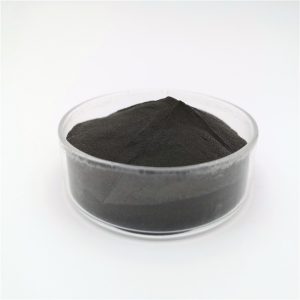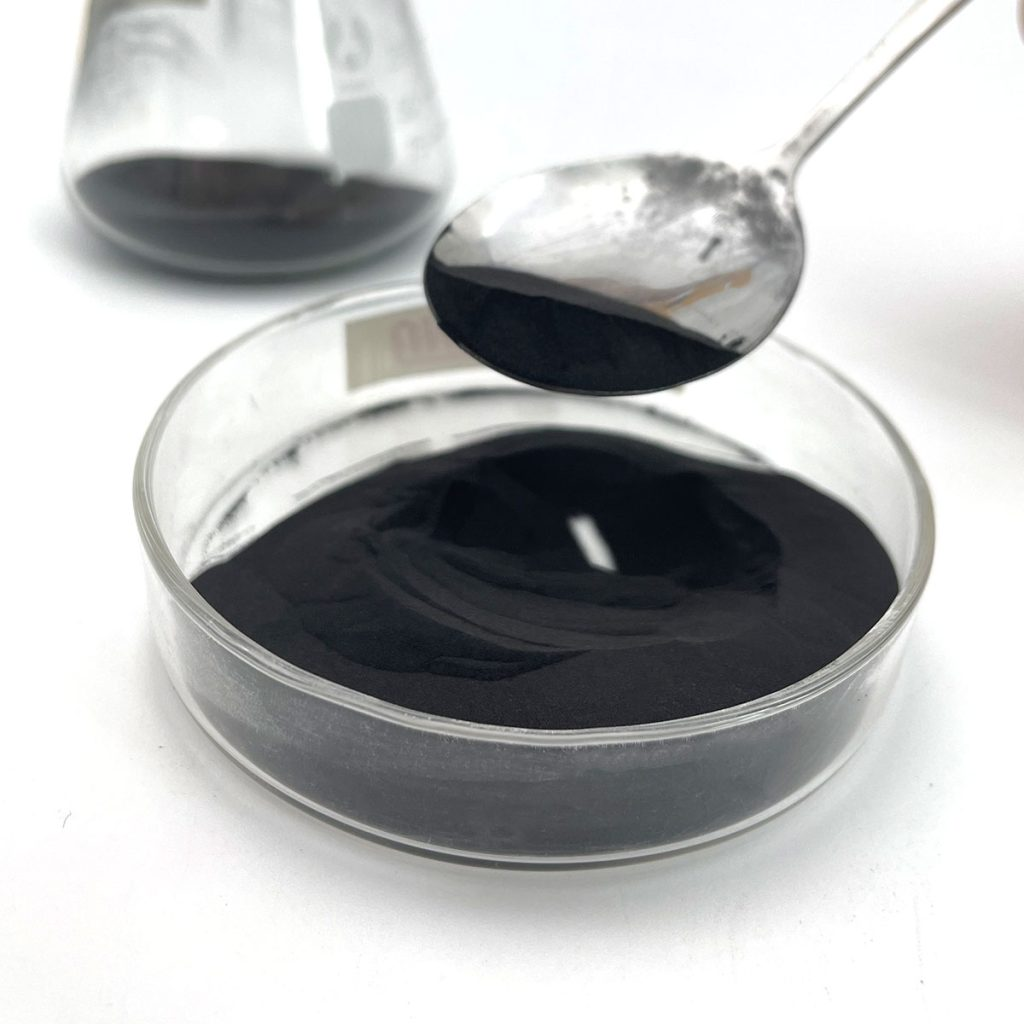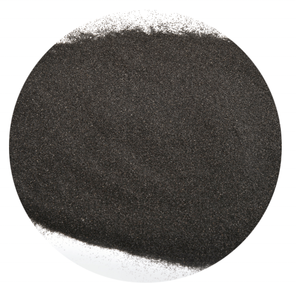Professional and high-quality metal alloys, ceramic products and concrete additives | RBOSCHCO
PRODUCT PARAMETERS
Description
Overview of Titanium Nanoparticles Nano Ti Powder
Titanium Nanoparticles, also known as Nano Ti Powder, are a nanoscale titanium powder. The titanium element in this powder exists in the form of tiny particles, typically ranging in size from 1 to 100 nanometers. Due to their tiny particle size, Titanium Nanoparticles exhibit distinct physical and chemical properties from macroscopic materials, such as high specific surface area, excellent catalytic activity, and excellent optical properties.
These characteristics make Titanium Nanoparticles have broad application value in many fields, such as catalysts, biomedical, coatings, ceramics, electronics, etc. In the field of catalysts, their high specific surface area and catalytic activity make them efficient catalysts for many chemical reactions. In the field of biomedicine, Titanium Nanoparticles are used for drug delivery, imaging, and biosensors due to their biocompatibility and unique physical properties. In addition, its applications in coatings, ceramics, and electronics are constantly expanding to improve product performance and quality.

(Titanium Nanoparticles)
Features of Titanium Nanoparticles Nano Ti Powder
Ultra small particle size: The size of Titanium Nanoparticles is usually between 1-100 nanometers, which gives them a very high specific surface area.
Excellent catalytic activity: Due to its ultra-small size and high specific surface area, Titanium Nanoparticles exhibit excellent catalytic performance and can be used in various chemical reactions.
Good biocompatibility: Titanium Nanoparticles have good compatibility with living organisms and can be used for biomedical applications such as drug delivery and biosensors.
Unique optical properties: Titanium Nanoparticles have unique optical properties, such as surface plasmon resonance, making them potentially valuable in the field of optics.
Highly active surface: Due to the nanoscale, the surface atom proportion of Titanium Nanoparticles is relatively large, which gives them high surface activity and reactivity.
Easy to functionalize: The surface of Titanium Nanoparticles is easy to chemically modify and functionalize, thereby expanding its application areas and improving its performance.
Parameter table of Titanium Nanoparticles Nano Ti Powder
| Titanium Nanoparticles Properties | |
| Other Names | titanium nanopowder, titanium nano-particles, titanium nano-powder, nanotitanium, nano-titanium |
| CAS No. | 7440-32-6 |
| Compound Formula | Ti |
| Molecular Weight | 47.86 |
| Appearance | Black Powder |
| Melting Point | 1660 ℃ |
| Boiling Point | 3287 ℃ |
| Poisson’s Ratio | 0.32 |
| Solubility in H2O | N/A |
| Thermal Expansion | (25 °C) 8.6 µm·m-1·K-1 |
| Titanium Nanoparticles Health & Safety Information | |
| Signal Word | Danger |
| Hazard Statements | H250 |
| Hazard Codes | P210-P231-P280-P302 + P334-P370 + P378-P422 |
| Risk Codes | N/A |
| Safety Statements | N/A |
| Transport Information | UN1383- class 4.2 – PG 1 |
Application of Titanium Nanoparticles Nano Ti Powder
Catalyst: Titanium Nanoparticles, as an efficient catalyst, are widely used in fields such as petrochemicals, environmental protection, and energy.
Biomedical: Due to its excellent biocompatibility and unique optical properties, Titanium Nanoparticles are used in fields such as drug delivery, biological imaging, and cancer treatment.
Coatings: Titanium Nanoparticles can be made use of to prepare high-performance coverings and coverings, enhancing their firmness, put on resistance, and rust resistance.
Ceramic products: Presenting Titanium Nanoparticles right into ceramic products can dramatically boost the mechanical buildings, thermal security, and electric residential or commercial properties of porcelains.
Electronic materials: Titanium Nanoparticles are also widely used in the field of electronics, such as in the preparation of high-performance electronic devices, electrode materials, and capacitors.
Other fields: Titanium Nanoparticles can also be applied in multiple fields, such as sensors, optical devices, energy storage materials, etc., demonstrating broad application prospects.

Application of Titanium Nanoparticles Nano Ti Powder

Application of Titanium Nanoparticles Nano Ti Powder
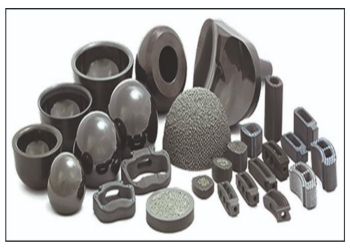
Application of Titanium Nanoparticles Nano Ti Powder
Production Method of Titanium Nanoparticles Nano Ti Powder
Physical Vapor Deposition (PVD)
- Evaporation: Titanium is evaporated in a high-vacuum environment using techniques like electron beam evaporation or thermal evaporation. The high temperature causes the titanium atoms to turn into vapor.
- Condensation: The titanium vapor is then allowed to condense on a cold substrate or in a carrier gas atmosphere. The atoms aggregate and form titanium nanoparticles. The vacuum level is usually on the order of 10−4 to 10−6 Pa, and the substrate temperature can be controlled between 100°C and 500°C.
- Mechanical Milling
- Material Preparation: Titanium powder or titanium alloy powder is used as the starting material.
- Milling: The powder is placed in a ball mill with grinding balls. Through the high-speed rotation and collision of the balls, the titanium powder is continuously crushed and refined. After a long milling time, usually dozens of hours to hundreds of hours, titanium nanoparticles are obtained.
- Sol-Gel Method
- Sol Preparation: A titanium alkoxide, such as titanium tetrabutoxide, is dissolved in an organic solvent like ethanol. Water and a catalyst, such as hydrochloric acid or ammonia, are added to initiate hydrolysis and condensation reactions, forming a sol.
- Gelation: The sol gradually transforms into a gel through further condensation reactions.
- Calcination: The gel is dried and calcined at high temperatures, typically 400°C to 800°C, to remove organic components and obtain titanium nanoparticles.
- Chemical Reduction Method
- Solution Preparation: A titanium salt solution, such as titanium chloride solution, is prepared. A reducing agent, like sodium borohydride or hydrazine, is added to the solution.
- Reaction: The reducing agent reduces the titanium ions in the solution to form titanium nanoparticles. The reaction is carried out at a specific temperature and pH value. The temperature ranges from 25°C to 80°C, and the pH value is carefully controlled between 8 and 12.
- Microbial Synthesis: Some microorganisms, such as bacteria and fungi, can reduce titanium ions in the environment. The organisms are cultured in a medium containing titanium salts. Through their metabolic activities, they can convert titanium ions into titanium nanoparticles, which are then separated and purified.
- Plant Extract Synthesis: Extracts from plants, such as leaf extracts or fruit extracts, contain bioactive substances that can act as reducing and stabilizing agents. Titanium salt solutions are mixed with plant extracts. The bioactive substances in the extracts reduce titanium ions to form titanium nanoparticles under mild conditions, usually at room temperature and neutral pH.
Company Profile
RBOSCHCO is a trusted global chemical material supplier & manufacturer with over 12-year-experience in providing super high-quality chemicals and nanomaterials, including boride powder, nitride powder, graphite powder, sulfide powder, 3D printing powder, etc.
The company has a professional technical department and Quality Supervision Department, a well-equipped laboratory, and equipped with advanced testing equipment and after-sales customer service center.
If you are looking for high-quality Titanium Nanoparticles Nano Ti Powder, please feel free to contact us or click on the needed products to send an inquiry.

Storage Condition of Titanium Nanoparticles Nano Ti Powder
Titanium nanoparticles should be stored in a dry environment with relative humidity below 40% to prevent agglomeration caused by moisture. The storage temperature is preferably between 2 – 8°C to maintain stability. They should be kept in sealed, inert gas-filled containers, like those filled with nitrogen or argon, to avoid oxidation. Store away from intense light and reactive substances to prevent chemical changes and property degradation.
Payment Term
L/C, T/T, Western Union, Paypal, Credit Card etc.

Shipment Term
By sea, by air, by express, as customers request.
5 FAQs of CTitanium Nanoparticles Nano Ti Powder
Q1
What is the average particle size range of Titanium Nanoparticles (Nano Ti Powder)?
Answer: The average particle size range of Titanium Nanoparticles (Nano Ti Powder) typically varies between 1 and 100 nanometers, depending on the specific preparation method and application.
Q2
How does the high surface area of Titanium Nanoparticles (Nano Ti Powder) affect its performance?
Answer: The high surface of Titanium Nanoparticles (Nano Ti Powder) substantially boosts its catalytic task, sensitivity, and communication with various other products. This enhanced area additionally enables extra reliable mass transportation and warm transfer, resulting in boosted efficiency in numerous applications.
Q3
What are the unique optical properties exhibited by Titanium Nanoparticles (Nano Ti Powder)?
Answer: Titanium Nanoparticles (Nano Ti Powder) show distinct optical residential or commercial properties such as surface area plasmon vibration, which brings about solid absorption and spreading of light at details wavelengths. These optical homes make them helpful in applications like optical sensing units, photocatalysis, and solar power conversion.
Q4
How are Titanium Nanoparticles (Nano Ti Powder) typically produced?
Answer: Titanium Nanoparticles (Nano Ti Powder) are usually generated via physical or chemical techniques such as gas-phase condensation, liquid-phase decrease, or mechanical milling. These approaches permit specific control over the bit dimension, form, and framework of the nanoparticles.
Q5
What are the potential applications of Titanium Nanoparticles (Nano Ti Powder) in the field of biomedicine?
Answer: Titanium Nanoparticles (Nano Ti Powder) have numerous potential applications in the field of biomedicine due to their biocompatibility, small size, and unique properties. They can be used as drug delivery vehicles, imaging agents for MRI or computed tomography (CT), and for targeted therapy in cancer treatment. Additionally, they can also be employed in biosensors and other diagnostic devices.
REQUEST A QUOTE
RELATED PRODUCTS
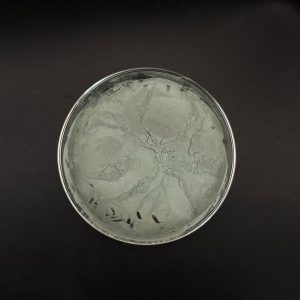
Factory Price Silicon Carbide Powder SiC Nanoparticles SiC Nanopowder
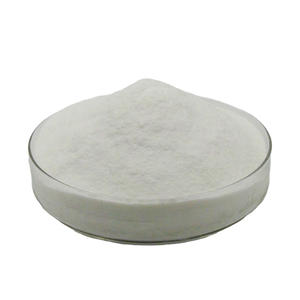
Heat Resistance, Cold Resistance, Corrosion Resistance, Wear Resistance Polytetrafluoroethylene Powder PTFE
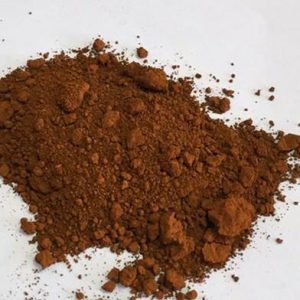
High Purity 99.9% Nano Copper powder CAS 7440-50-8 Nano Copper powder
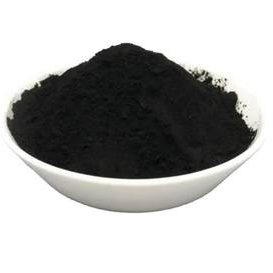
99.9% Iron Element Pure Nano Iron Powder Fe Nanoparticles Price

Metallic Materials Nano Zirconium Carbide ZrC Alloy Materials Zirconium Carbide with CAS 12070-14-3
